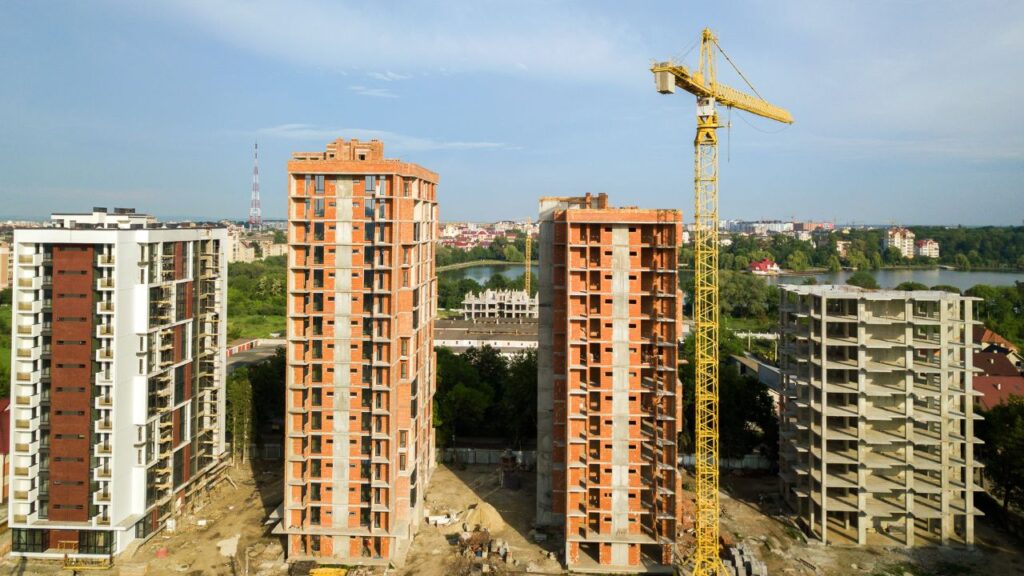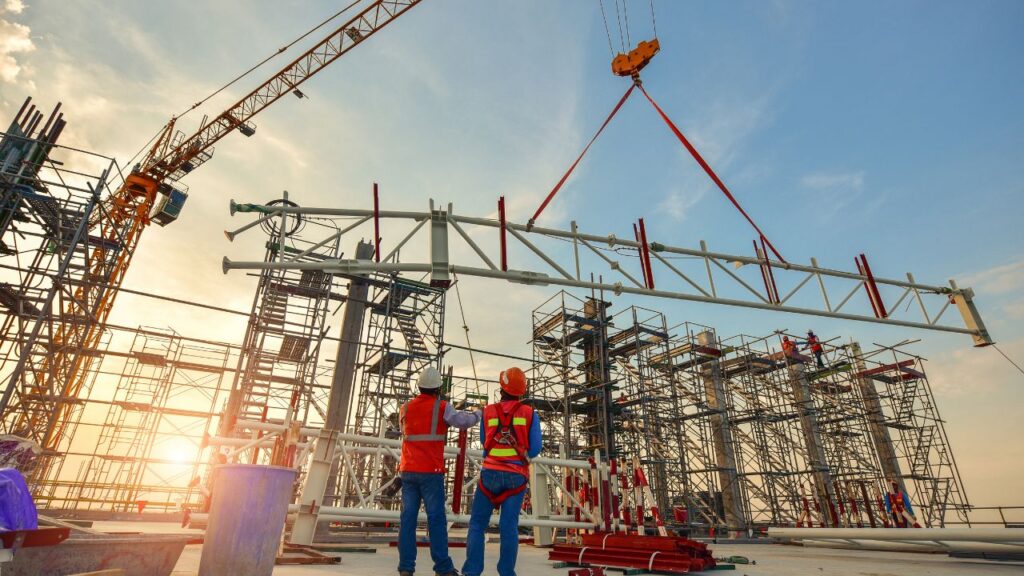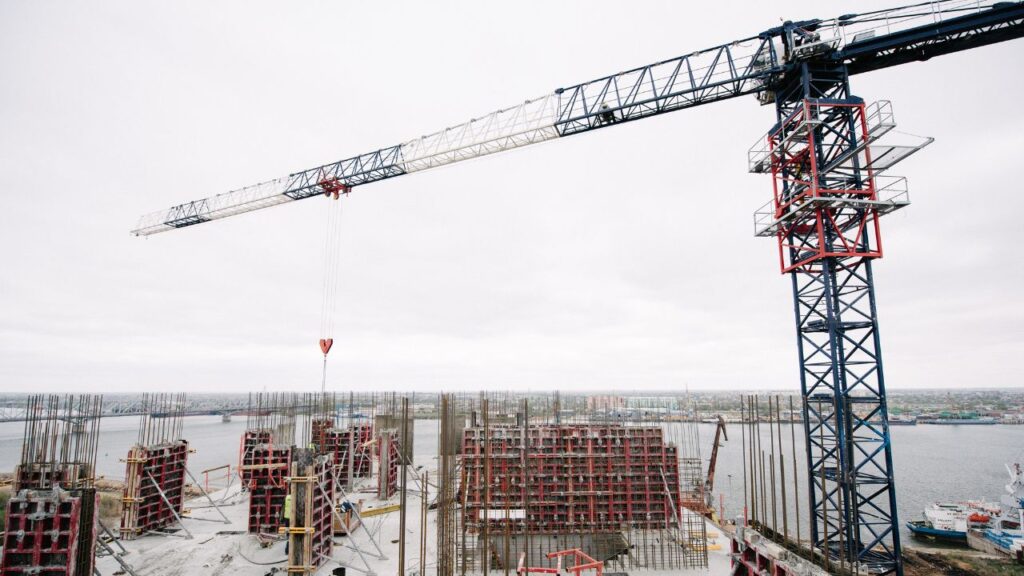A Wining Cost Estimate
That Helps You To Win More Construction Projects

A comprehensive understanding of the responsibilities of an accomplished construction estimator is a fundamental requirement for hiring the best candidate for the role. Estimators are responsible for:
By evaluating various factors such as market trends, material prices, labor rates, and safety requirements, estimators must identify potential budgetary constraints to ensure accurate pricing.
In addition to costing components of construction projects expertly by analyzing budgets and material requirements, excellent estimators should have exceptional analytical abilities and communication skills. Counting quantities of materials necessary for a building or mechanical system is critical because a shortfall or surplus can be disastrous. They must also communicate their findings with team members efficiently while maintaining deadlines.

With technology advances in the construction industry over time, estimators now carry out their tasks digitally using specialized software explicitly designed for this purpose. This allows them to input data from blueprints and scale drawings rapidly, reduce inaccuracies significantly in calculations compared to manual methods.
Pro Tip: While hiring an estimator, look for experience in relevant industries who possess strong analytical abilities with knowledge of industry-specific software programs like CostX.
Being able to estimate the amount of coffee needed for an all-nighter is not an essential qualification for a construction estimator, but it certainly helps.
Essential Expertise for a Successful Construction Estimator
A construction estimator is responsible for calculating all the costs involved in building projects from inception to completion. To excel as a construction estimator, an individual should have certain essential qualifications.
It’s also crucial for the estimator to keep up-to-date with industry trends by attending events or obtaining relevant certifications.
Pro Tip: It’s advisable to invest in professional training programs that focus on providing practical skills necessary for exceling in this field.
Finding the perfect construction estimator is like finding a needle in a haystack, but with a degree in mathematics and a hard hat.

Assembling a pool of candidates for your construction estimator role requires some strategic planning. Here are three essential points to consider:
To widen the search, use variations of the job title you’re recruiting for and include relevant keywords that showcases the specific skills desired in a successful estimator.
When looking to hire a construction estimator, what sets your search apart must be offering relevant growth potential matched with an attractive salary range.
One suggestion is to set up interviews and meetings away from distractions so you can have quality communication with the candidates. Additionally, encourage feedback from interviewees to help evaluate comprehension levels and skill expertise.
In choosing the right candidate – consider overall experience working in construction domains – more valuable than observing formal degree qualifications alone- which only serve as one aspect of their candidacy criteria.
Evaluating construction estimator candidates is like trying to find a needle in a haystack, but with a good estimator, you’ll build a castle instead of just a pile of hay.
To evaluate candidates for your construction estimator role with interviewing techniques, reviewing a candidate’s portfolio & past work history and assessing a candidate’s technical abilities, you need to ensure that you hire the best-fit candidate. This section will help you to explore the sub-sections for evaluating potential construction estimators and the importance of each of these during the hiring process.
Interviewing Construction Estimators demands comprehensive and in-depth knowledge of the construction industry. Interviewers should evaluate a candidate based on their education, skills, experience as well as their problem-solving skills to avoid project cost overruns and delays.
A 4-Step Guide for Evaluating Candidates for Your Construction Estimator Role:

4. Team Collaboration: Look out for excellent communication skills and teamwork which are crucial qualities required while working on complex construction projects involving multiple stakeholders.
Pay special attention to the nuances of each candidate during interviews. Evaluate their attention to detail in using different data sets, assessing contracts, check compliance documents like insurance certificates or environment permits.
Lastly, it is insightful to gain an expert opinion from seasoned Executives or Project Managers who witnessed a candidate’s handling on past projects before making final decisions. This will ensure you place only qualified individuals with practical experience in critical positions.
Let’s hope their past work history doesn’t involve building the Leaning Tower of Pisa 2.0.
When examining a prospect’s historical job responsibilities and professional profile, following are some factors to consider:
Factors to Consider | Description |
Career Trajectory | Determine if the person progressed in their career through positions of increasing responsibility. |
Project Complexity | Identify the complexity of the types of projects they have worked on. |
Responsibilities Held | Evaluate what tasks they were specifically accountable for on each project, such as budgeting and scheduling. |
It is important to maintain a neutral tone throughout this evaluation process.
A study conducted by Associated Builders and Contractors found that sixty-nine percent of construction firms reported difficulties in finding skilled labor. It is essential for construction workers to possess the necessary skills and knowledge to perform their jobs efficiently.
Can they tell the difference between a 2×4 and a toothpick? Let’s hope so, unless you want an expensive toothpick structure instead of a house.
Maximize your construction business’s potential with our competitive financing options

To evaluate the technical capabilities of a potential construction estimator, assessing their proficiency in various areas is necessary. This can include skills in cost estimation, reading blueprints and schematics, knowledge of industry-specific software and technology tools, mathematical calculations, and familiarity with construction materials.
Technical Skill | True/False |
|---|---|
Ability to read blueprints and schematics | True |
Knowledge of industry-specific software and technology tools | True |
Proficiency in mathematical calculations | True |
Familiarity with a range of construction materials | True |
However, evaluating a candidate’s technical ability is not limited to just an assessment on their skillset. It also requires analyzing their experience level and depth of knowledge within their field. In addition, seeking references and work samples will help to discern the quality of an applicant’s work.
To further ensure that only the best-suited candidates are selected for the role of construction estimator, conducting behavioral interviews is suggested. Asking questions related to decision-making practices while under pressure or how they approach collaboration with team members can provide insight into their professional character.
Overall, assessing a candidate’s technical abilities goes beyond their proficiency scorecard alone. It involves analyzing demonstrated experience level along with behavioral tendencies that align with the demands of a construction estimator role. By doing so, companies filter out successful candidates who will add value to their workforce long-term.
Remember, negotiating salary is like building a house – start with a strong foundation and don’t forget the extras like benefits and bonuses.
When considering hiring a construction estimator, negotiating salary and compensation packages is an essential aspect. It involves various factors that must be considered to ensure the estimator is being appropriately remunerated.
Negotiating salary and compensation packages requires careful attention to detail as it plays an integral role in attracting potential employees to your organization. It’s also essential to be transparent about the entire process while engaging with potential hires. Being straightforward and informative allows candidates to make informed decisions. A critical factor in retention is offering continuous learning opportunities that foster career growth within your company.
Training a construction estimator is like teaching a dog new tricks, but with blueprints instead of bones.

When it comes to integrating a new Construction Estimator into your team, it becomes essential to provide them with the right onboarding and training. Providing adequate support can help them handle their assigned tasks and responsibilities effectively.
One of the most crucial steps in providing appropriate onboarding and training is ensuring that the estimator understands your company’s culture, work ethics, values, and goals. It would be best to introduce them to other team members, give them an overview of what everyone does, explain their roles and responsibilities within the team.
To ensure that your estimator has a clear understanding of their job role, create a detailed job description outlining their tasks at hand. The job description should also include any specific qualifications they may need for this position.
While onboarding and training can take time and effort initially, you will see positive results in the long run if done correctly. Ensure that you allocate sufficient resources towards this process as it will reduce errors and increase efficiency in the long run

In addition to providing training, it can be helpful to schedule periodic check-ins with your estimator. Ask for feedback from them regarding their experience so far with the company or anything they feel could improve performance measures.
By taking these small steps in providing intensive support during onboarding/training for your construction estimator, you’re setting up an environment for growth potential for both employees and employers alike; resulting in reduced employee turnover rates while improving overall company performance.
Managing a construction estimator is like herding cats, but with blueprints and deadlines.
Providing Support to Your Construction Estimator
Maximizing the productivity of your construction estimator requires a supportive environment. This includes giving them the necessary tools and resources such as software programs, data analytics techniques and clear project details that they need to carry out estimates efficiently.
Moreover, regular feedback sessions will help you understand whether their needs are being appropriately met or if they require additional support. Regular training on modern estimating practices, guidelines for communication procedures, and industry updates can help keep your estimation teams up-to-date with ever-changing trends.
It is essential to assist them in setting achievable targets while also ensuring that their work is quality-checked before submission to clients. This approach fosters an open culture that prioritizes honest feedback and helps build trust between team members.
Look for someone who has experience in construction and estimating, with a good understanding of the industry and current market trends.
Ask for referrals from industry contacts or search for reputable firms online. Look for reviews and testimonials to gauge their experience and reputation.
A good estimator will review plans, identify all necessary materials and labor, and then create a detailed estimate of the project’s costs and timeline.
Prior to hiring an estimator, ask for references and review their work history. Once you have an estimate, ask detailed questions about the costs and compare them to industry standards.
Yes! Multiple estimates give you a range of prices to compare with each other. This will help you get the best price for your project while ensuring you are working with a reputable estimator.
Ask about their experience, their process for creating an estimate, how they handle changes or mistakes, and their availability during the project timeline.
Here I am going to share some steps to get your construction cost estimate report.
You can send us your plan on info@estimatorflorida.com
Before starting your project, we send you a quote for your service. That quote will have detailed information about your project. Here you will get information about the size, difficulty, complexity and bid date when determining pricing.
We do construction cost estimating and prepare a detailed report for your project. At last you finalize the report and finish the project.
561-530-2845
info@estimatorflorida.com
Address
5245 Wiles Rd Apt 3-102 St. Pete Beach, FL 33073 United States
561-530-2845
info@estimatorflorida.com
Address
5245 Wiles Rd Apt 3-102 St. Pete Beach, FL 33073 United States
All copyright © Reserved | Designed By V Marketing Media | Disclaimer
IMPORTANT: Make sure the email and cell phone number you enter are correct. We will email and text you a link to get started.
By clicking “I Agree” above you give Estimate Florida Consultin express written consent to deliver or cause to be delivered calls and messages to you by email, telephone, pre-recorded message, autodialer, and text. Message and data rates may apply. You are able to opt-out at any time. You can text STOP to cancel future text messages.